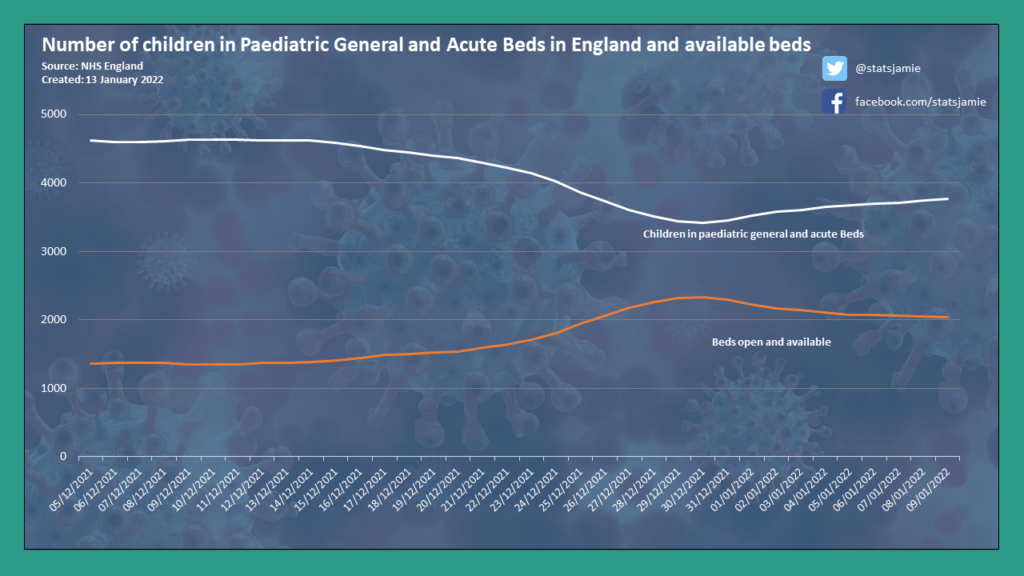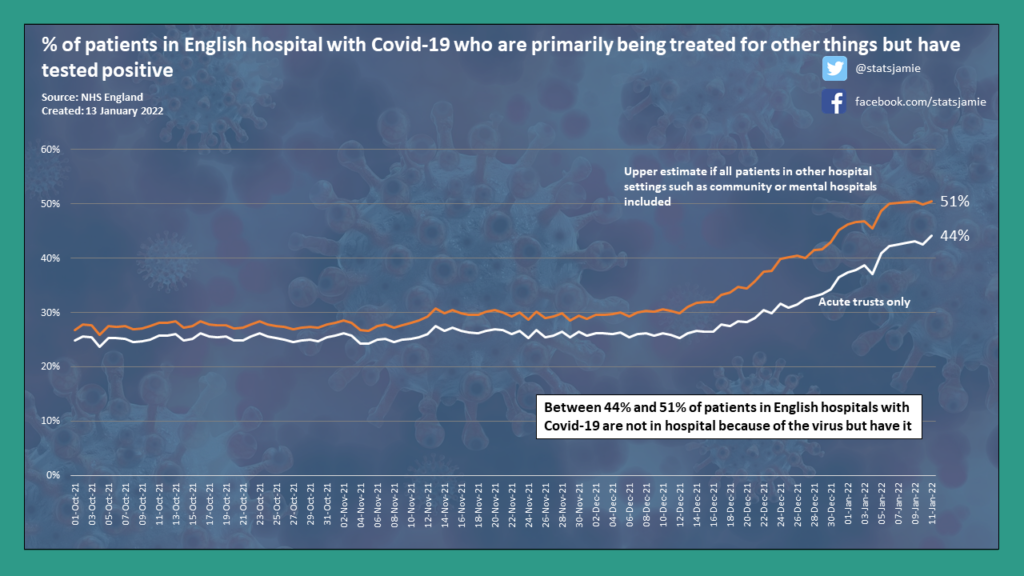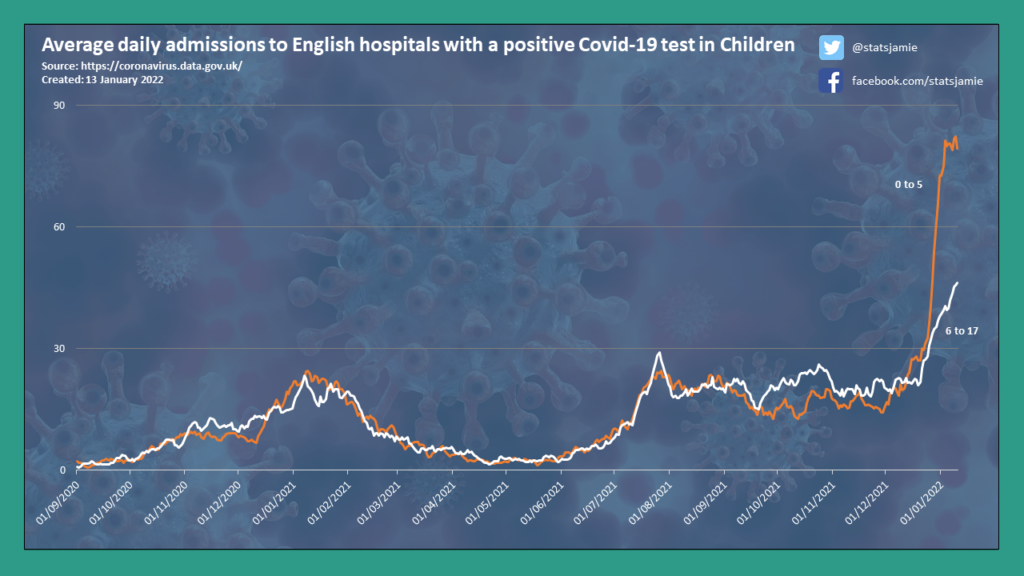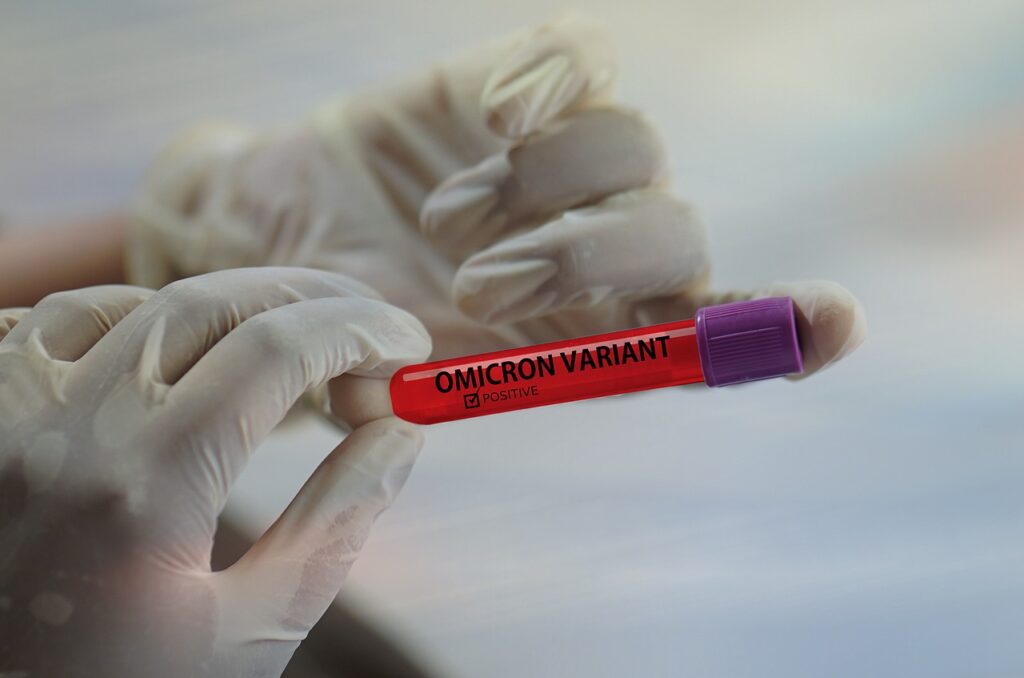Evidence indicates that Omicron is less likely to result in an admission to a hospital. Last week I wrote that Covid-19 was not leading to a rise in children in hospital. With two weeks more data, how has the situation changed with the Omicron variant causing significant numbers of cases?
Fewer children in pediatric beds than a month ago
Throughout the winter months, we get a weekly update on the number of children in pediatric beds. The total number of children in hospital remained flat and then fell as we headed into the Christmas period, with fewer admissions for some planned medical procedures. As we moved into the new year, numbers have increased slightly but still down on last month. So the Omicron wave of Covid-19 has not led to more children in hospital.

More people in hospital with Covid but not because of it
NHS England updates each week the number of patients in acute hospitals with Covid-19 who are primarily in hospital for other reasons. As more people get infected with Omicron, we would expect to see more people admitted to hospitals with it. At the extreme, if 100% of the population had Omicron, then every admission to hospital would be with Covid-19.
Until mid-December, around 1 in 4 patients (25%) were in hospital with Covid-19, but not being treated primarily because of it. More recently, this has risen to around 44%, a clear indicator that Omicron is adding people to hospital admission numbers who would have been in hospital anyway for other reasons.
These numbers only include acute hospitals, where a patient receives active, short-term treatment for a condition. There are patients with Covid-19 in other hospital settings, such as maternity beds or those having treatment for mental illnesses. It is likely that many of these are not in hospital because of Covid-19 and if all patients fell into this category, it would mean around 51% of patients in English hospitals have Covid-19 but are primarily on a ward for other reasons.

Children with Covid-19 in hospital has risen in recent weeks
Since the middle of December, as the Omicron variant spread significantly in England, the average daily number of children admitted to hospital with Covid-18 has increased. In the seven days to 10 January, there were on average 120-130 admissions to hospital of children with Covid-19.
But against this backdrop of increasing admissions with Covid-19, the total number of children in hospital overall is lower over the past month. So how do we see a rise in admissions with Covid but no overall rise in the total number of children in hospitals?
Those included as a Covid-19 in the official figures are anyone admitted who either tested positive for the virus in the 14 days before admission or during their stay in hospital. So someone admitted to hospital for a non-COVID reason but then later tests positive, becomes an admission.
With increasing numbers of people in hospital with Covid-19 but are in for other reasons, it is likely we are picking up more children with Covid-19 in the admissions numbers, who would have been in hospital anyway.

Conclusion
Children get admitted every day for a wide variety of reasons and the surge of Covid-19 through the Omicron variant has not led to an increase in the overall numbers of child hospital patients. In fact, the total number of patients has fallen over the recent Omicron wave. Hospitals may have postponed some elective surgery in anticipation of the Omicron wave, but for the most recent week, 35% of beds were open for use but unoccupied. If Omicron was leading to large numbers of children falling sick, you would expect the spare capacity to be used, but it is not.
As more people catch Omicron, it is important we distinguish between those admitted because of the virus and those who have Covid-19, but the reason for hospital treatment is something else.
While there will be instances where Covid-19 is causing serious illness in children, the evidence through the pandemic points to this being rare. We are not seeing any increases in the total number of child hospital patients in pediatric wards.
Follow me over on Twitter, Gettr, Instagram, or Facebook for my daily updates.

